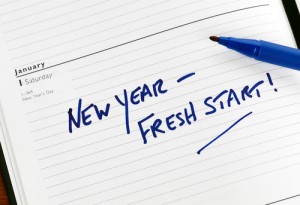 One day I called up my friend, Susan, and asked her how she was. She said, “Things are great. Joe and I just got back from another week long vacation.” I realized that, just about every time I talked to Susan, she had recently gone on vacation. I was a bit annoyed and jealous. “How do you take so many vacations?” I asked. Her reply made me even more annoyed, “We simply make it a priority.” I felt a certain amount of self-pity as I shot back, “Boy, I wish my life was set up so I could take so much time off.” In a compassionate, yet direct manner, Susan replied, “You can if it’s important enough to you. Joe and I just decided we’d take eight weeks off each year. There’s a lot of resistance to doing that, but we’re committed to living the life that we want to live.” Continue reading →
One day I called up my friend, Susan, and asked her how she was. She said, “Things are great. Joe and I just got back from another week long vacation.” I realized that, just about every time I talked to Susan, she had recently gone on vacation. I was a bit annoyed and jealous. “How do you take so many vacations?” I asked. Her reply made me even more annoyed, “We simply make it a priority.” I felt a certain amount of self-pity as I shot back, “Boy, I wish my life was set up so I could take so much time off.” In a compassionate, yet direct manner, Susan replied, “You can if it’s important enough to you. Joe and I just decided we’d take eight weeks off each year. There’s a lot of resistance to doing that, but we’re committed to living the life that we want to live.” Continue reading →
Tag Archives: experience
The Three Minute Body Miracle
 It’s a rainy, sleepy afternoon, and you’re stuck in front of your computer. Your bones are weary, your eyes blurred, and your mind feels burned out. You can grab another cup of coffee, but you know your body really doesn’t need any more caffeine. What to do? If you knew that in three minutes of effort you could go from burned out to blissed out, would it be worth your while? If the answer is yes, then the “Three Minute Body Miracle” (or T.M.B.M for short) is for you. This simple, but amazingly effective four-step technique does several things in a short period of time. First, it gets your body naturally energized. Second, it stimulates blood flow to the brain for better focus and concentration. And finally, it allows you to quickly let go of stress and tension in both your body and mind. If you try it just a couple of times, I think you’ll be hooked. Continue reading →
It’s a rainy, sleepy afternoon, and you’re stuck in front of your computer. Your bones are weary, your eyes blurred, and your mind feels burned out. You can grab another cup of coffee, but you know your body really doesn’t need any more caffeine. What to do? If you knew that in three minutes of effort you could go from burned out to blissed out, would it be worth your while? If the answer is yes, then the “Three Minute Body Miracle” (or T.M.B.M for short) is for you. This simple, but amazingly effective four-step technique does several things in a short period of time. First, it gets your body naturally energized. Second, it stimulates blood flow to the brain for better focus and concentration. And finally, it allows you to quickly let go of stress and tension in both your body and mind. If you try it just a couple of times, I think you’ll be hooked. Continue reading →
The Five Questions of Success
 If someone asked me to describe in four simple words how they could achieve wealth, health, and happiness, my answer would be easy: ask the right questions for success. When we ask ourselves good questions, it leads us to make better decisions as to where and how to spend our time. When we fail to ask the right questions, we can easily fall prey to mechanical routines, other people’s goals, and a life of unhappiness. When it comes to taking charge of your time and your life, asking the right questions can be the answer you’ve been looking for.
If someone asked me to describe in four simple words how they could achieve wealth, health, and happiness, my answer would be easy: ask the right questions for success. When we ask ourselves good questions, it leads us to make better decisions as to where and how to spend our time. When we fail to ask the right questions, we can easily fall prey to mechanical routines, other people’s goals, and a life of unhappiness. When it comes to taking charge of your time and your life, asking the right questions can be the answer you’ve been looking for.
I created a list of five questions that seemed the most valuable in gently guiding people back to the life they truly desired. I have found that answering these questions once a month can be an amazingly efficient way to create the life you really want. When answering these questions, it’s best to say your answers out loud to a mate, friend, or co-worker. Another option is to write down what you have to say in a journal. Somehow, saying the answers out loud or writing things down has more impact than simply thinking them in your head.
For each of the five questions that follow, I give a brief description of why it can be useful to ask yourself—or those you love—this question once a month.
1) What can I do this week to bring more fun and/or meaning into my life?
As adults, most of us get lost in daily routines, problems, and plans. Yet, as children, life was very different. We’re not born into this world as planners and problems solvers, but rather as bundles of playful energy. This question can help remind you to schedule something each week to bring fun and/or meaning into your life. It will help provoke your thinking as to what you currently find fun or meaningful, and help you keep these things as priorities in your life
2) What could I feel grateful for in my life?
This may seem like a strange question to get your life in order, but it’s important to remember what is going great in your life. If you focus only on what’s wrong with your life, you’ll always be thinking about problems. Part of living a successful life means focusing on what’s going well, and feeling grateful for how blessed you are.
3) How can I use the gifts I’ve been given to better serve people?
If you want to make a lot of money, get good at giving people what they want. If you want love, become skillful at caring for people. Whatever you want in life, you can receive it by becoming good at serving people. This question will help you to consistently ponder how you can do this more effectively.
4) Is there anything I’m doing that is hurting myself, other people, or steering me off course?
When planes fly to a destination, they are of course over 90% of the time. However, they almost constantly correct their course, so they end up where they’re supposed to be. We need to do likewise. When people make mistakes, they often spend a lot of time in blame, self-pity, or distraction. That just makes matters worse. Instead, what we need to do is quickly realized when we’re off course, and immediately take the actions necessary to get back on track
5) What would be good to do to create more balance, harmony or growth in my life?
To answer this question, it helps to access your intuition, or still, small voice inside. Perhaps there has been something you’ve been avoiding, and this question will help you realize it’s time to move forward. Whenever possible, try to be specific with your answer and the new action(s) you plan to take. Insights are helpful, but only changes in actual behavior are likely to lead to the results you desire.
 These five questions are an easy, quick, and powerful way to gain important insights that will help you to plan your time wisely. Rather than waiting until a problem is big, these questions will help you to handle things when they’re small and easily handled. By writing your answers in a journal, or taking turns answering these questions with a friend, you can help each other create the life you truly desire.
These five questions are an easy, quick, and powerful way to gain important insights that will help you to plan your time wisely. Rather than waiting until a problem is big, these questions will help you to handle things when they’re small and easily handled. By writing your answers in a journal, or taking turns answering these questions with a friend, you can help each other create the life you truly desire.
Creating Balanced Goals
 Setting and achieving goals is perhaps the most documented technique for manifesting what you want—efficiently and effectively. Since writing your goals is so powerful, it’s important to know precisely what you want to create so you will be pleased when you get it. If you don’t specify your dreams clearly enough, you can end up creating a nightmare. Sometimes people who write down their goals do create a life that is out of harmony. Why? Because their goals are all outward goals—such as making more money. Yet, manifesting more money is of little good if it’s created at the cost of your time, relationships, and peace of mind. Therefore, I think it’s best to create what I call “balanced goals.” Balanced goals are goals that have both an internal and an external element to them. For example, if you want more money, it can be helpful to know why you want it. If you realize it’s to have more peace of mind, then why not make a goal to create more peace of mind in your life while you make more money?
Setting and achieving goals is perhaps the most documented technique for manifesting what you want—efficiently and effectively. Since writing your goals is so powerful, it’s important to know precisely what you want to create so you will be pleased when you get it. If you don’t specify your dreams clearly enough, you can end up creating a nightmare. Sometimes people who write down their goals do create a life that is out of harmony. Why? Because their goals are all outward goals—such as making more money. Yet, manifesting more money is of little good if it’s created at the cost of your time, relationships, and peace of mind. Therefore, I think it’s best to create what I call “balanced goals.” Balanced goals are goals that have both an internal and an external element to them. For example, if you want more money, it can be helpful to know why you want it. If you realize it’s to have more peace of mind, then why not make a goal to create more peace of mind in your life while you make more money?
To  create a balanced goal, you need to know two things. First, you need to know exactly what you’d like to manifest in the material world. Second, you want to identify what you hope to experience as a result of achieving your external goal. The easiest way to know what inner goal is appropriate for you, is to ask yourself the following question: “What feeling do I hope to experience as a result of achieving my external goal (such as more money, a house, etc.)?” Once you know what feeling or experience you ultimately want to have, make having more of that experience the focus of your inner goal. Below is an example of how you might go through the four-step process for achieving an inner goal. To better illustrate this process, I’ll use my interaction with a client named Sarah as an example:
create a balanced goal, you need to know two things. First, you need to know exactly what you’d like to manifest in the material world. Second, you want to identify what you hope to experience as a result of achieving your external goal. The easiest way to know what inner goal is appropriate for you, is to ask yourself the following question: “What feeling do I hope to experience as a result of achieving my external goal (such as more money, a house, etc.)?” Once you know what feeling or experience you ultimately want to have, make having more of that experience the focus of your inner goal. Below is an example of how you might go through the four-step process for achieving an inner goal. To better illustrate this process, I’ll use my interaction with a client named Sarah as an example:
1: Write down your inner goal. To know your inner goal, ask yourself: “What feeling do I hope to experience as a result of achieving my external goal?” When I asked Sarah this question, she eventually realized she wanted more comfort and security.
2: Write down the criterion that the goal has been adequately achieved. In the case of inner goals, I suggest people create an “intuitive scale” to measure how they’re doing. Ask yourself, “On a 1 to 10 scale (10 representing the best possible), how much of my inner goal (in Sarah’s case, how much comfort and security) do I currently have in my life?” When I asked Sarah this question, she said she was “about a 4.” Then I asked her, “Where do you want to be on a 1 to 10 scale, and by when?” She responded, “I’d like to be at a level 7 five months from today.”
3: Brainstorm steps you could take to help you move towards achieving what you ultimately want. Ask other people how they might go about achieving a similar goal. The more ideas you come up with, the better.
4: Do the activities on your brainstorm list in a logical order until you’ve achieved the goal–or need to create a new plan.
Notice  that in the above example with Sarah, I had her create an internal way to measure her progress towards more security and comfort. You can always improve what you can measure. Although creating an “intuitive 1 to 10 scale” is not absolutely precise, I’ve found that people say it works surprisingly well in measuring their progress. All you need to do is rate, on an internal 1 to 10 scale, how you’re currently doing in the area you want to work on. Then, about once a week ask yourself, “How am I now doing (on a 1 to 10 scale)?” Hopefully, you’ll see gradual improvement. If not, it may mean you need to do different tasks in order to be more successful.
that in the above example with Sarah, I had her create an internal way to measure her progress towards more security and comfort. You can always improve what you can measure. Although creating an “intuitive 1 to 10 scale” is not absolutely precise, I’ve found that people say it works surprisingly well in measuring their progress. All you need to do is rate, on an internal 1 to 10 scale, how you’re currently doing in the area you want to work on. Then, about once a week ask yourself, “How am I now doing (on a 1 to 10 scale)?” Hopefully, you’ll see gradual improvement. If not, it may mean you need to do different tasks in order to be more successful.
For the best results, keep your goals on a sheet of paper that you can see every day. About once a week or so, read over your plan and see how you’re doing. See if you can schedule any more steps from your plan into the upcoming week.
By taking small actions each week on her internal and external goals, Sarah was able to achieve both her goals. In fact, she achieved her internal goal (creating more comfort and security) much faster than she expected. Sarah reported to me that her newfound comfort with herself assisted her on her job, which eventually led to the increase in pay she desired. When people create balanced goals, they often work in a synergistic manner that leads to extraordinary results. As you set balanced goals, you’ll soon notice that your life feels more centered, balanced, and harmonious. With the right method, it is possible to experience both wealth and peace.
The Power of Deliberate Kindness
 Armed with the secret information I am about to reveal to you, you will soon have incredible power in making friends and business contacts. Since these human technologies are so powerful, I must first give you some warnings as to how to use them. Please don’t use the ideas I’m about to divulge as a way to manipulate people. If you do, people will eventually see through your charade. Instead, consider these tools for connecting with people as a way to extend your good, caring intentions. If you use these methods with good intentions, you and the people you connect with will be amply rewarded. Continue reading →
Armed with the secret information I am about to reveal to you, you will soon have incredible power in making friends and business contacts. Since these human technologies are so powerful, I must first give you some warnings as to how to use them. Please don’t use the ideas I’m about to divulge as a way to manipulate people. If you do, people will eventually see through your charade. Instead, consider these tools for connecting with people as a way to extend your good, caring intentions. If you use these methods with good intentions, you and the people you connect with will be amply rewarded. Continue reading →
The Joy of Peak Moments
 Why do people travel half way around the world to visit a place such as Disneyland, pay $125 to get in, and stand in line for an hour for a three minute ride? Because, as human beings, we crave peak moments. The desire for an intense, special, extraordinary experience is one of our deepest desires. That’s one of the major reasons why we like sex, falling in love, winning a big game, and weddings. Yet, peak moments need not be reserved for such major events. You can learn to create them in daily life with people you care about. Once you learn the skill of creating special times for other people, your relationships will never be the same. People will want to know you, do business with you, and even marry you because you know how to create a sense of aliveness wherever you are. There are four key concepts that can help you create more peak moments with your friends, mate, co-workers, and family. Continue reading →
Why do people travel half way around the world to visit a place such as Disneyland, pay $125 to get in, and stand in line for an hour for a three minute ride? Because, as human beings, we crave peak moments. The desire for an intense, special, extraordinary experience is one of our deepest desires. That’s one of the major reasons why we like sex, falling in love, winning a big game, and weddings. Yet, peak moments need not be reserved for such major events. You can learn to create them in daily life with people you care about. Once you learn the skill of creating special times for other people, your relationships will never be the same. People will want to know you, do business with you, and even marry you because you know how to create a sense of aliveness wherever you are. There are four key concepts that can help you create more peak moments with your friends, mate, co-workers, and family. Continue reading →
When you get the Winter blues…
 During the winter months, a lot of people end up feeling more “down” than usual. In many cases, this can be due to the fact that they have what is called S.A.D. or Seasonal Affective Disorder. S.A.D. comes from not getting enough light and/or being indoors more than usual. Fortunately, S.A.D. is often easily remedied. Below I’ve written a brief guide to knowing if you might have Seasonal Affective Disorder, as well as some simple tips for overcoming it effectively.
During the winter months, a lot of people end up feeling more “down” than usual. In many cases, this can be due to the fact that they have what is called S.A.D. or Seasonal Affective Disorder. S.A.D. comes from not getting enough light and/or being indoors more than usual. Fortunately, S.A.D. is often easily remedied. Below I’ve written a brief guide to knowing if you might have Seasonal Affective Disorder, as well as some simple tips for overcoming it effectively.
Even if you personally don’t suffer from S.A.D., you probably have friends or family members who do. Feel free to pass this quick guide to overcoming it onto them… Continue reading →
How to Make New Year’s Resolutions that Work
 It’s that time of the year again to make resolutions. Instead of making them and then breaking them like most people do, why not put some punch behind your resolutions? I helped invent a method that practically guarantees your resolutions will be kept. The technique, which I call the Integrity Contract, helps people stay motivated when the going gets tough. After all, it is only people who are consistent over a long period who ultimately succeed in life
It’s that time of the year again to make resolutions. Instead of making them and then breaking them like most people do, why not put some punch behind your resolutions? I helped invent a method that practically guarantees your resolutions will be kept. The technique, which I call the Integrity Contract, helps people stay motivated when the going gets tough. After all, it is only people who are consistent over a long period who ultimately succeed in life
In order to make consistent progress towards one’s goals, we need some form of immediate pain to occur if we fail to take appropriate action. If every time you failed to exercise three times a week you cut off a finger, you’d be a lot more consistent! Since no sane person would ever do that, you need to find an immediate pain you would be willing to give to yourself if you fail to act in beneficial ways. After much trial and error, I found a solution that worked. In the last fifteen years, I’ve taught the Integrity Contract method to thousands of people, and the results have been astounding. Here’s the essence of the technique:
Write a contract with yourself that states all the precise actions you’re willing to commit to do during the following week. Then write a statement that says, “For each of the items on this contract I fail to do by one week from today, I agree to rip up $2.” Finally, sign your contract, date it, and place it in a place you’ll see it every day. That’s it. Here’s an example of a simple contract:

“During the next week, I will exercise 3 times for a minimum of forty minutes. I will read a minimum of sixty pages from the book I got on investing. I will meditate for at least twenty minutes each day. For each task I don’t complete by January 7th, I will rip up $2.”
There are several reasons why this method is so effective. First, there is a clear proclamation of what you intend to do, and by when you intend to do it. Normally, people have a lot of lofty thoughts about what they could do to improve their life (aka New Year’s Resolutions), but these thoughts soon slip away. With the Integrity Contract method, you’ll have a visual reminder of what you’re committed to do. Second, with this technique, you’ll experience immediate pain if you fail to keep your word. Since your brain is always trying to avoid immediate pain, it will do its best to complete what’s on the contract.
As far as I’m concerned, it’s fine to not complete everything on your contract–as long as you rip up the money for the tasks you don’t finish. I’ve seen that, as long as people are willing to rip up money for failing to complete their contract, the method eventually works. Maybe not the first or second week, but by the third week you’ll find your mind screaming at you to complete whatever you wrote down.
Below is another example of how such a contract looks:
I, Jonathan, agree to do the following over the course of the next week:
a) Call five potential clients about my new seminar.
b) Wash my car, and put an ad in the paper to sell it.
c) Ask a friend to read my latest article and get their feedback.
d) Start a savings account to save money for a vacation to Europe.
For each of the above items I fail to complete by 5:00 p.m. next Thursday, I agree to rip up $2.
(date) (signature)________________________
Then put the contract in a place where you will see it daily. Bathroom mirrors are good. So are car dashboards. At the end of the week, evaluate how you did. If you did not complete any items on your contract, no matter what your excuse, tear up the appropriate amount of money.
Think of how quickly you could turn your goals into a reality if you made progress on them each week. Let this year be a year in which you keep your resolutions and your promises to yourself. People who have the patience to slowly but surely make progress on their goals are the people who succeed in life.
As an added way to make sure you get support to turn your New Year’s resolutions and dreams into reality, I am offering a Free teleconference call on January 2nd.
It’s called “The Best Ways to Increase Happiness
 Lastly, feel free to pass this blog on to your friends and family. Wouldn’t it be great if they also started the New Year off on the right foot? Then, you could support each other towards making 2014 an amazing year of growth, love, and joy. By signing up for my free preview call and/or signing up for my “Happiness Through Great Relationships” Course, you’ll be giving your friends and family an opportunity to make 2014 their best year yet.
Lastly, feel free to pass this blog on to your friends and family. Wouldn’t it be great if they also started the New Year off on the right foot? Then, you could support each other towards making 2014 an amazing year of growth, love, and joy. By signing up for my free preview call and/or signing up for my “Happiness Through Great Relationships” Course, you’ll be giving your friends and family an opportunity to make 2014 their best year yet.
Sign up for FREE PREVIEW call here:
Finding Happiness Increase Happiness Through Great Relationships
Sign up here for: Finding Happiness Through Great Relationships course
How to Really Enjoy the Holiday Season
 ‘It was the week before Christmas and in my own house I was frantic and hurrying, and felt like a louse. That was five years ago. That day I vowed I would never again get sucked into the hyped up of “Christmas Spirit.” Instead of running around, fighting traffic, and losing my temper with store clerks, I decided I would do whatever it takes to really enjoy the holidays. After all, it’s supposed to be a time of celebration and spiritual renewal. Why not make it into one? Of course, if you’re at all like I was, you’re going to have to change how you “do Christmas” if you ever hope to truly enjoy yourself. I’ve found that four simple keys can help people turn their hurried Holidays into heavenly Holy days.
‘It was the week before Christmas and in my own house I was frantic and hurrying, and felt like a louse. That was five years ago. That day I vowed I would never again get sucked into the hyped up of “Christmas Spirit.” Instead of running around, fighting traffic, and losing my temper with store clerks, I decided I would do whatever it takes to really enjoy the holidays. After all, it’s supposed to be a time of celebration and spiritual renewal. Why not make it into one? Of course, if you’re at all like I was, you’re going to have to change how you “do Christmas” if you ever hope to truly enjoy yourself. I’ve found that four simple keys can help people turn their hurried Holidays into heavenly Holy days.
First, try to remember the original purpose of the Holiday Season. Can you remember a Christmas memory from your childhood that was filled with joy, comfort, and love? That’s really what we all want to experience during the Holidays. Yet, sometimes it seems we’re being led down a fast flowing river that only leads to stress, insecurity, and even sadness. By having a clear picture of what a truly happy Holiday Season would be like, you have a fighting chance to create what you want.
 Once you have an idea of what you’d like to experience during the Holidays, your next step is to figure out creative ways to avoid what you don’t like about Christmas. For example, if you don’t enjoy running around buying a lot of presents, then don’t. Most people ask themselves the wrong question when it comes to planning their Christmas. Subconsciously, they think, “What should I do now that it’s the Holiday Season?” If you “should” all over yourself, you’ll never enjoy Christmas. Instead, it’s better to ask yourself, “What would I love to do to spread joy and good cheer this time of year?” Listen to your own unique answer to that question. By following your heart, you’ll feel the joy of
Once you have an idea of what you’d like to experience during the Holidays, your next step is to figure out creative ways to avoid what you don’t like about Christmas. For example, if you don’t enjoy running around buying a lot of presents, then don’t. Most people ask themselves the wrong question when it comes to planning their Christmas. Subconsciously, they think, “What should I do now that it’s the Holiday Season?” If you “should” all over yourself, you’ll never enjoy Christmas. Instead, it’s better to ask yourself, “What would I love to do to spread joy and good cheer this time of year?” Listen to your own unique answer to that question. By following your heart, you’ll feel the joy of
Christmas, and enliven the Spirits of those you love.
A third way to keep the Spirit of the Holiday’s alive is to give a present to yourself. I don’t mean another sweater or necktie. I mean something that will help you to experience the joy, peace, and sacredness of life. Last year, my partner and I spent three days in Yosemite in the middle of December. Leaving the craziness of city life for the grandeur of nature was the best present possible for both of us. This year we plan to go to a desert resort. As we sink into a Jacuzzi bath while listening to Mozart, we’ll be sure to reminisce about the madness we left behind back home. What would be some treat you could give to yourself that would add meaning, joy, and relaxation to your winter season? Schedule it in now, before you get too swept up in the Christmas rush.
Lastly, to have a truly Merry Christmas or Happy Hanukah
 Plan ahead for something that you’d truly like to do. If you’re not spending the Holidays with your family, call some friends and see if they’re available. Perhaps you can create a meal together, play a fun board game such as Pictionary or Monopoly, or simply have a meaningful conversation. In my book The Little Book of Big Questions, I offer readers over 200 questions that can spark lively conversations and help keep the Spirit of Christmas alive.
Plan ahead for something that you’d truly like to do. If you’re not spending the Holidays with your family, call some friends and see if they’re available. Perhaps you can create a meal together, play a fun board game such as Pictionary or Monopoly, or simply have a meaningful conversation. In my book The Little Book of Big Questions, I offer readers over 200 questions that can spark lively conversations and help keep the Spirit of Christmas alive.
Perhaps around a Christmas dinner you can ask your friends and family questions such as:
- What’s your favorite Christmas (or Hanukah) memory?
- What was one of the most special moments you experienced this past year?
- What are you truly grateful for in your life right now?
- What was the worst Christmas gift you ever received?
- What gives you a real sense of joy in life?
Asking questions like these to those you love can help bring intimacy and a sense of the sacred back into the Holiday Season. Your fondest Christmas memories are probably not of presents you’ve been given, but of the special times you’ve spent with people you cared about. Having a really good conversation with a friend or family member can be one of the best “gifts” you ever receive.
Although advertisements try to convince us otherwise, the Holiday Season is not a time of ease and joy for most of us. If you plan to have a good Christmas, you need to be deliberate about creating a sacred time with yourself and/or the people you care about. By following your own heart, and keeping true to the original purpose of the Season, you can make this your best Holiday ever.
How to Pray Without Ceasing
 With Thanksgiving upon us, I thought it was a good idea to blog about giving thanks and the power of gratitude. In my book The Experience of God, I asked each of the forty well-known spiritual leaders I interviewed about their favorite method of feeling closer to their Creator. While the range of responses was surprising, the answer I heard more than any other was that of focusing on feeling grateful to God throughout the day. As Ram Dass put it, “Gratitude opens your heart, and opening your heart is a wonderful and easy way for God to slip in.”
With Thanksgiving upon us, I thought it was a good idea to blog about giving thanks and the power of gratitude. In my book The Experience of God, I asked each of the forty well-known spiritual leaders I interviewed about their favorite method of feeling closer to their Creator. While the range of responses was surprising, the answer I heard more than any other was that of focusing on feeling grateful to God throughout the day. As Ram Dass put it, “Gratitude opens your heart, and opening your heart is a wonderful and easy way for God to slip in.”
In Western culture, we often think of prayer as asking God for something. Yet, in many spiritual traditions, prayer is primarily considered a way of thanking God for the blessings in one’s life. Many years ago, I received an important lesson about “thankfulness prayer” from a Native American medicine man named Bear. As a condition of being interviewed about his life, Bear requested we meet at a location sacred to his tribe. Once there, he suggested that both of us begin by offering up a prayer to the Great Spirit. My simple prayer was that our time together be well spent, and that it would serve our becoming closer to God. The bear began his prayer in his native tongue, as I listened patiently. After ten minutes of listening to the sounds of his tribal language, I began getting impatient. After twenty minutes of listening to his prayer, I was secretly irritated. While I grew restless, Bear looked like he was soaring as high as the eagles that flew overhead. Finally, after fifty minutes, Bear finished speaking his words of prayer.
Trying to hide my sense of irritation, I began my interview by asking Bear, “What did you pray for?” Bear’s calm reply was, “In my tribe, we don’t pray for anything. We give thanks for all that the Great Spirit has given us. In my prayers, I simply thanked Spirit for everything I can see around me. I gave thanks to each and every tree I can see from here, each rock, each squirrel, the sun, the clouds, my legs, my arms, each bird that flew by, each breath I took, until I was finally in full alignment with the Great Spirit.” It was clear to me that this man really knew how to pray.
 From Bear’s inspiration and the wisdom of many others
From Bear’s inspiration and the wisdom of many others
I’ve interviewed, I began trying this new method of prayer. To make this form of prayer in my daily life, I began by simply saying, “Thank you God for (whatever is in my awareness).” Sometimes I would “prime the pump” by first thanking God for things that are easy for me to feel grateful for. For example, I might say, “Thank you for my health. Thank you for such a beautiful day. Thank you for my wonderful wife.” Then, once I truly felt a sense of gratitude in my heart, I would use “thank you” as a “mantra” for whatever I was currently aware of. For instance, if I was driving somewhere I might say, “Thank you for my car, thank you for my Iphone, thank you for this beautiful music, thank you for this nicely paved road, thank you for the man that just cut me off, thank you for the anger that he stirred up in me, thank you for the opportunity to practice forgiveness.”
The secret of this technique is to see all things as gifts given to us by God to enjoy or learn from. Normally, we take virtually everything for granted, and rarely stop to appreciate the wonderful things we are given. It can be eye opening to realize that even middle class folks of today live better than Kings lived just 100 years ago. Yet, without the “thank you technique,” all the amenities of modern day life can go unappreciated.
 Once you have used this method for awhile, you can even use it to begin to value things that are unpleasant. In the example above, getting cut off by an aggressive driver was not my idea of a good time. Yet, if I’m doing my “thank you” mantra, I’m more likely to see how such an event can serve me. From a higher state of mind, I can see that this driver is helping me learn patience, compassion, and forgiveness—three things I’m not very good at. Fortunately, there are many drivers and people who are willing to help me learn this lesson! Thank you God for all that help.
Once you have used this method for awhile, you can even use it to begin to value things that are unpleasant. In the example above, getting cut off by an aggressive driver was not my idea of a good time. Yet, if I’m doing my “thank you” mantra, I’m more likely to see how such an event can serve me. From a higher state of mind, I can see that this driver is helping me learn patience, compassion, and forgiveness—three things I’m not very good at. Fortunately, there are many drivers and people who are willing to help me learn this lesson! Thank you God for all that help.
Like any mantra or phrase that a person repeats, repeatedly saying “thank you” can build up a momentum of its own as you use it throughout the day. However, it’s important that it doesn’t become a mechanical mental exercise. With each thank you that is thought, it’s essential to feel a sense of appreciation in your heart for the gift you’ve been given. Besides helping a person tune into an ecstatic feeling of gratitude, this method can also help a person become more aware and present in the eternal now.

